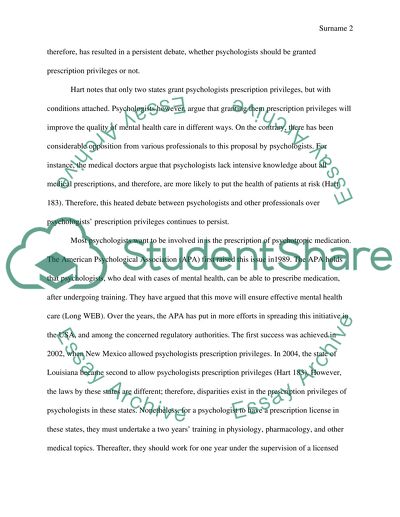Cite this document
(“Arguments for and against prescription writing by psychologists Essay”, n.d.)
Retrieved from https://studentshare.org/sociology/1404389-arguments-for-and-against-prescription-writing-by
Retrieved from https://studentshare.org/sociology/1404389-arguments-for-and-against-prescription-writing-by
(Arguments for and Against Prescription Writing by Psychologists Essay)
https://studentshare.org/sociology/1404389-arguments-for-and-against-prescription-writing-by.
https://studentshare.org/sociology/1404389-arguments-for-and-against-prescription-writing-by.
“Arguments for and Against Prescription Writing by Psychologists Essay”, n.d. https://studentshare.org/sociology/1404389-arguments-for-and-against-prescription-writing-by.


